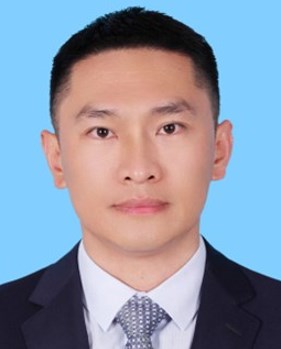Invited Speaker

Dr. Liyuan Sheng
Professor, Vice-Dean, Shenzhen Institute, Peking University, ChinaSpeech Title: Optimizing Microstructure and Mechanical Properties of the Hot Forged Ti-6Al-4V Alloy via Laser Shock Peening
Abstract: The hot forged Ti-6Al-4V alloy demonstrates well constructured microstructure and balanced mechanical properties, which promotes its widely application in aviation field. However, its relative poor resistance to wear and foreign object impact usually leads to the cumulative damage, causing sudden failure and serious accident. Though the conventional coating technology could improve the surface damage resistance, the interface always becomes the origin of failure. Comparatively, Laser shock peening (LSP) has attracted significant interest, due to its controlled processing accuracy and great surface plastic deformation capability, which could form gradient grain structure with the gradient strengthening effect. Nevertheless, the specific mechanism of microstructure evolution and mechanical properties enhancement of LSP processed hot forged Ti-6Al-4V alloy is still obscure. In present research, the hot forged Ti-6Al-4V alloy was processed by LSP to regulate its superficial microstructure and improve mechanical properties, helping to understand the inner mechansim. The results reveal that LSP could simultaneously result in the merging of ultra-fine α-Ti grains and refinement of coarse α-Ti grains, which reconstruct the dual-size grain structure. The crystal tilting and transformation promoted by the generation and movement of dislocations benefit the merging of ultra-fine grains. Due to the different slip systems in dual phases, β-Ti phases exhibit much greater response to slip under surface plastic deformation, which are enforced to deform and construct the shell structure by sliding and phase transformation, while the α-Ti phases act as the core to synergistically construct ‘core-shell’ like structure. The increase of LSP number promotes the well wrapping of the ‘core-shell’ like structure and strengthens it by abundant dislocations, which also forms the gradient grain structure from surface to inner. Since the microstructure regulation and crystal defects engineering, the LSP improves the surface damage resistance and mechanical properties of the hot forged Ti-6Al-4V alloy obviously, which indicates a new method to increase properties of the hot forged Ti-6Al-4V alloy component further.
Keywords: Ti-6Al-4V alloy, laser shock peening, microstructure, core-shell structure, wear properties, tensile properties.
Acknowledgements: This work was supported by the Shenzhen Basic Research Project (JCYJ20210324120001003 and JCYJ20200109144608205).
Biography: Prof. Dr. Sheng received Ph.D. degree in Materials Physics and Chemistry from Institute of Metal Research Chinese Academy of Sciences in 2009. He is currently a Research Professor and vice-dean of Shenzhen Institute, Peking University. Now, he also act as the Topic editor and editorial board member of Materials, the associate editor of Advances In Mechanical Engineering and the youth editorial board member of Journal of Magnesium and Alloys. His research interests include intermetallic compounds, superalloys, biomedical metallic materials, biodegradable magnesium alloys, surface engineering, laser processing, crystal defects, and characterization. Prof. Sheng has published more than 180 research papers in refereed scientific journals and received a total citation of more than 5000 with h-index of 45.

